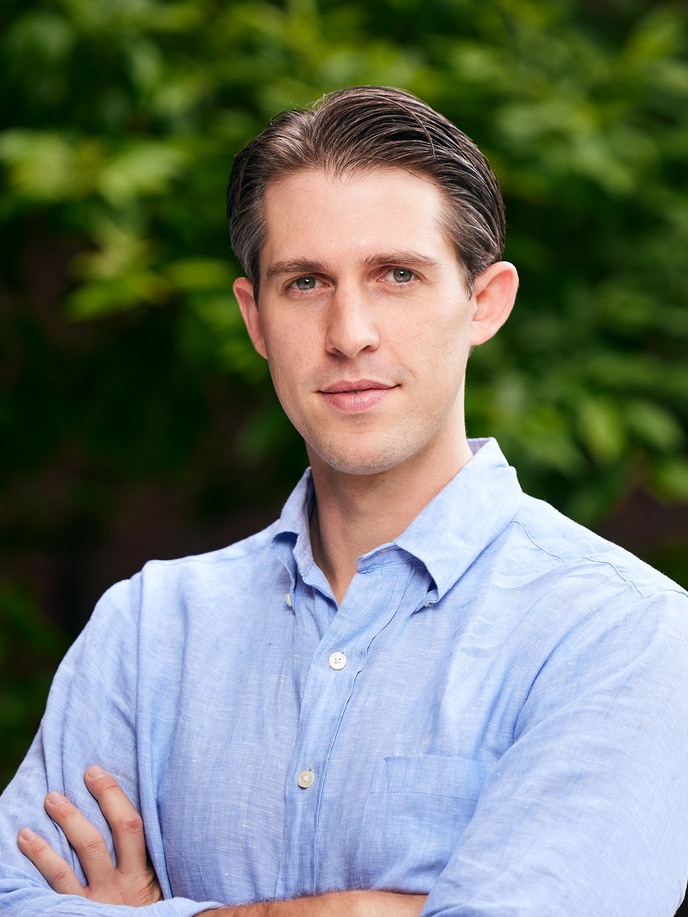For Grant Cohen, the path to a career that satisfied his desire to make a positive impact on the world wasn't just a professional pivot; it was a deeply personal journey shaped by profound personal losses and witnessing the trials faced by communities during the pandemic.
Before enrolling in Brown's Master of Public Affairs (MPA) program at the Watson Institute, Cohen was a partner and practice leader at CRA-Economic Development (CRA-ED), which works with nonprofit and public sector clients on technical assistance program development and technology initiatives.
Cohen began his career as a management consultant, working with Fortune 1000 retail and hospitality clients on a variety of complex strategy and technology-based engagements. During those years, which he described as "challenging," Cohen realized he wanted to make a more meaningful impact on the world.
As the pandemic reshaped daily life, Cohen faced a series of personal hardships. Within two years, he lost his mother, his grandfather, and his beloved rescue dog. These losses inspired a new outlook. "In the midst of the pandemic, I was working on recovery initiatives at both the state and city levels, interacting with people and communities whose lives had been upended and thrown into chaos," said Cohen. "Yet, I, too, was battling my own set of incredibly difficult personal challenges."
Cohen found his work during the pandemic to be a source of healing for him, even though his clients were unaware of the personal challenges he was navigating. "Those people and organizations may be grateful for the work I did with and for them, but the gratitude absolutely moves in the other direction," he said. "It was this special symbiotic nature of service, where we uplifted each other."
These experiences left a lasting impact on Cohen, inspiring him to apply his skills and energy toward greater social change. This drive led to his decision to enroll in Brown University's MPA program, where he was awarded a Public Service Scholarship. He completed the program while continuing his full-time consulting role. The one-year program was intense but offered the deep, practical training Cohen sought.
"I came to this program with a very specific set of personal goals. I wanted to become a stronger writer and communicator, but most importantly, I wanted to sharpen how I approached policy problems," said Cohen. "Watson's curriculum over-delivered in every facet, allowing me to take what I was good at and make it better."
One such standout experience was David Blanding's Policy Analysis and Problem Solving course. Learning to distill complex issues into concise, one-page policy briefs pushed Cohen out of his comfort zone. "It was a challenge at first," he said. "Throughout my early career, I often worked on large research projects with lengthy reports and analysis. I had less experience taking that level of research and condensing it. It's one of the most valuable skills I gained."
He also appreciated how the course exposed him to energy-burdened communities in Rhode Island through the class's engagement with the RI Department of Human Services. "It wasn't just about technical skills. It was about understanding the economic complexities that so many people face," he said.
"I understood exactly what Professor Blanding was looking to do with this class," said Cohen. "He wanted to expose students to policy ramifications structured around basic human needs such as access to heating and cooling. How can we strive to uplift communities and people in larger ways if they are struggling with the basic necessities of living?"
"The class helped ground me in the kind of work I want to do moving forward," Cohen added.
Cohen found his time at Watson transformative. The program aligned perfectly with his goals of advancing in the social impact sector. After graduation, he transitioned to work with one of his former clients, the Boston Main Streets Foundation (BMSF), as director of strategic initiatives. BMSF, a public-private partnership established by the City of Boston in 2005, aims to “develop long-term strategies to increase the economic power and resources of neighborhood commercial districts while pursuing initiatives that build knowledge and capacity for the Boston Main Streets programs and businesses they serve.”
Cohen's role touches every aspect of the organization, including organizational growth, partnerships, fundraising, and program operations. "I wear different hats," said Cohen. "There's incredible momentum at BMSF right now, and I'm eager to bring everything I have to continue this growth. I feel fortunate to work alongside such talented, passionate individuals, all of whom are part of an ecosystem deeply committed to progress. This work and our collective role mean more now than ever before."
